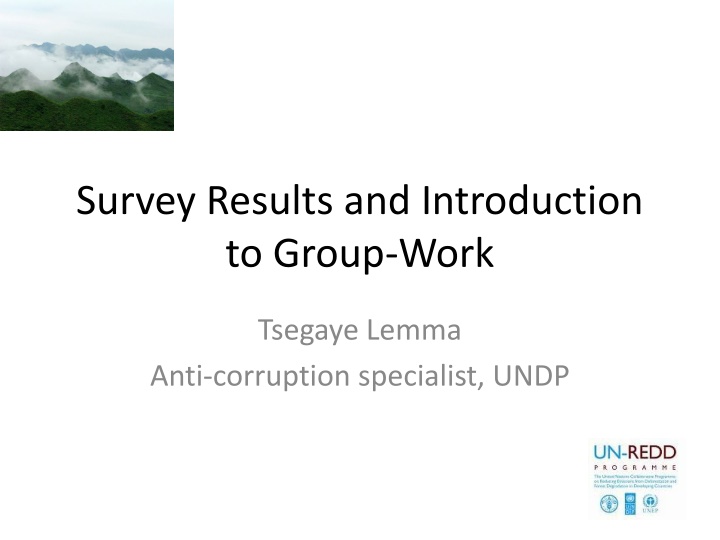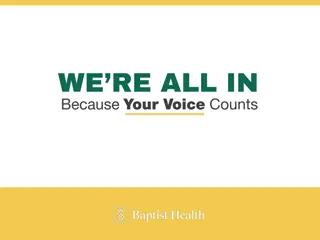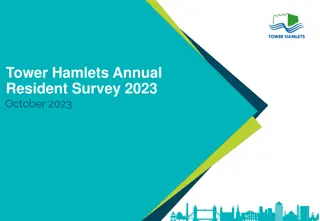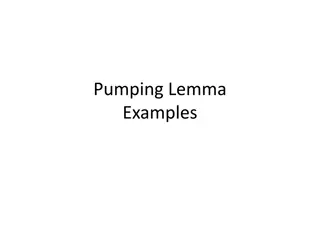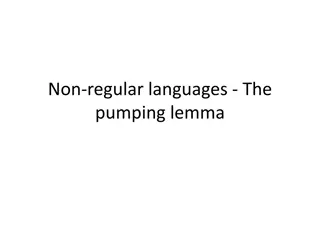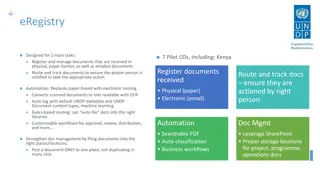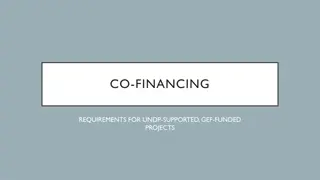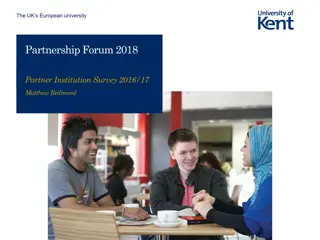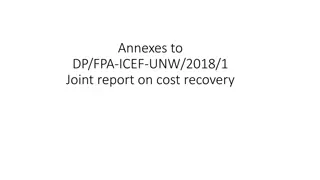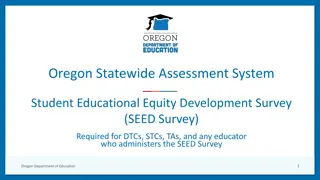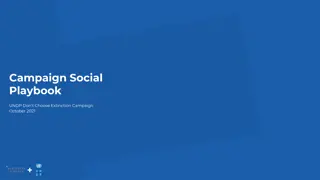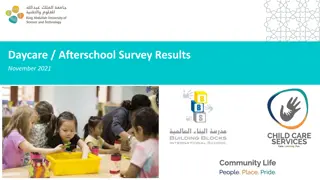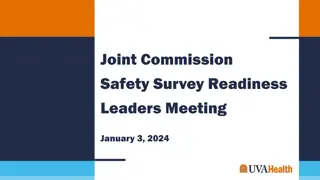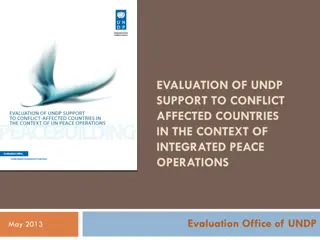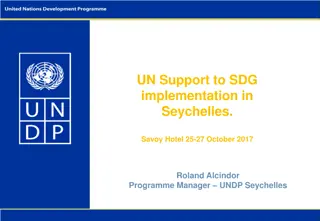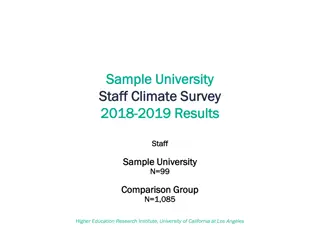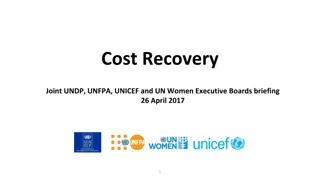Survey Results and Introduction to Group Work by Tsegaye Lemma UNDP
This presentation by Tsegaye Lemma, an anti-corruption specialist at UNDP, explores the challenges and risks associated with various aspects of group work, especially in the context of anti-corruption efforts. The content delves into issues such as unfair advantage, bribery, undue influence, and fraudulent practices that can negatively impact the effectiveness and integrity of group projects.
Download Presentation

Please find below an Image/Link to download the presentation.
The content on the website is provided AS IS for your information and personal use only. It may not be sold, licensed, or shared on other websites without obtaining consent from the author.If you encounter any issues during the download, it is possible that the publisher has removed the file from their server.
You are allowed to download the files provided on this website for personal or commercial use, subject to the condition that they are used lawfully. All files are the property of their respective owners.
The content on the website is provided AS IS for your information and personal use only. It may not be sold, licensed, or shared on other websites without obtaining consent from the author.
E N D
Presentation Transcript
Survey Results and Introduction to Group-Work Tsegaye Lemma Anti-corruption specialist, UNDP
The Biggies! High Likelihood High Impact 1 1 R_12 BDSs are designed behind closed doors to the disadvantage of deserving beneficiaries 2 3 R_7 Project developers or interest groups bribe public officials to ensure that the land areas they own are allocated to, or excluded from, REDD+ plans R_4 Loggers exert undue influence to exclude large areas of high value timber from areas designated for conservation 3 2 4 5 R_3 Powerful individuals influencing the design of the overall national REDD+ framework to benefit from it 5 6 R_10 powerful actors exert undue influence to obtain fraudulent licenses, land titles or carbon rights
The Biggies! Low Likelihood Low Impact 1 1 R_16 Actors bribe public officials to register the carbon rights in the name of the corrupt actor 2 7 R_6 those responsible for managing REDD+ payments embezzle REDD+ revenues R_18 Project developers attempt to bribe public officials to falsify claimed emission reductions from projects and therefore to secure additional revenues R_8 public actors intentionally distort information related to the distribution of benefits from REDD+ revenues 3 2 4 5 5 4 R_11 political elites exert undue influence to link carbon rights to State ownership of forests
Additional Risks Project developers fail to disclose to participants full revenue accruing from sale of credits Project developers intentionally develop benefit distribution models that favour certain participants For a country to completely miss the opportunity to participate in the scheme because of all of the above creating conflicts Community elites could divert community benefits. Civil Society agents can abuse their privileges and work against the community interest and the general REDD goal Displacement and grabbing of land from the poor communities
Zambia R_12 BDSs are designed behind closed doors to the disadvantage of deserving beneficiaries R_3 Powerful individuals influencing the design of the overall national REDD+ framework to benefit from it R_10 powerful actors exert undue influence to obtain fraudulent licenses, land titles or carbon rights R_7 Project developers bribe public officials to ensure that the land areas they own are allocated to, or excluded from, REDD+ plans R_13 political elites and the private sector agree to misrepresent national circumstances in a way that favours certain types of activities (such as plantations)
DRC R_4 Loggers exert undue influence to exclude large areas of high value timber from areas designated for conservation R_7 Project developers bribe public officials to ensure that the land areas they own are allocated to, or excluded from, REDD+ plans R_6 those responsible for managing REDD+ payments embezzle REDD+ revenues R_17 powerful individuals bribe or influence judges addressing conflicts related to customary land issues R_12 BDSs are designed behind closed doors to the disadvantage of deserving beneficiaries R_10 powerful actors exert undue influence to obtain fraudulent licenses, land titles or carbon rights
Republic of Congo R_12 BDSs are designed behind closed doors to the disadvantage of deserving beneficiaries R_17 powerful individuals bribe or influence judges addressing conflicts related to customary land issues R_13 political elites and the private sector agree to misrepresent national circumstances in a way that favours certain types of activities (such as plantations) R_14 actors involved in the carbon MRV system manipulate the data to over-estimate the emission reductions R_5 Actors exert undue influence and bribery of public officials who are responsible for implementing REDD+ to ignore breaches of REDD+ regulations
Nigeria R_10 powerful actors exert undue influence to obtain fraudulent licenses, land titles or carbon rights R_13 political elites and the private sector agree to misrepresent national circumstances in a way that favours certain types of activities (such as plantations) R_17 powerful individuals bribe or influence judges addressing conflicts related to customary land issues R_3 Powerful individuals influencing the design of the overall national REDD+ framework to benefit from it R_4 Loggers exert undue influence to exclude large areas of high value timber from areas designated for conservation
Kenya R_8 : powerful actors exert due influence and/or bribe public officials to create fraudulent licenses, land titles and carbon rights attributed to them instead of the appropriate rights holders R_5 Actors exert undue influence and bribery of public officials who are responsible for implementing REDD+ to ignore breaches of REDD+ regulations R_4 Loggers exert undue influence to exclude large areas of high value timber from areas designated for conservation R_9 : political elites exert undue influence to link carbon rights to state ownership of forests thus excluding any claims to carbon rights by those holding or asserting customary tenure R_6 those responsible for managing REDD+ payments embezzle REDD+ revenues R_12 BDSs are designed behind closed doors to the disadvantage of deserving beneficiaries
Global R_7 Project developers bribe public officials to ensure that the land areas they own are allocated to, or excluded from, REDD+ plans R_10 powerful actors exert undue influence to obtain fraudulent licenses, land titles or carbon rights R_16 project developers, logging companies or local elites bribe public officials to register the carbon rights over particular parcels of land in the name of the corrupt actor R_4 Loggers exert undue influence to exclude large areas of high value timber from areas designated for conservation R_5 Actors exert undue influence and bribery of public officials who are responsible for implementing REDD+ to ignore breaches of REDD+ regulations
Group Discussions We have grouped countries according to: a) Similarity in risk profiles b) Geography c) Equality in numbers!
Group Discussions Group 1 in room Kafue Zambia Group 2 in room Luangwa DRC Group 3 in room Chambeshi Republic of Congo Group 4 in room Zambezi Nigeria Group 5 in room Zambezi Kenya Free-floating Ethiopia and Tanzania Corruption risks (identified in survey) Baseline (Actions already taken, for each risk) Actions (for each risk or aggregated) Actor (for each action) 1. 2. 3. 4.
